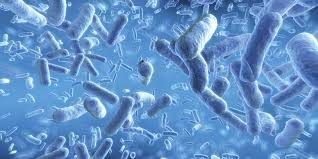WHY IS OUR MICROBIOME IMPORTANT, ANYWAY?
Right now, 90% of the cells in your body are microbial. These microbes –– a general term for bacteria, archaea, protists, and other molecular organisms –– are present throughout the body.
The human microbiome is the collection of all of these microbes. This means –– you guessed it –– 90% of your body is actually your microbiome. Keeping it balanced can have huge benefits not only for your digestion, but your brain, skin, immune system, and a host of other functions.
In fact, researchers are only scratching the surface of the potential of Probiotic supplements, and why they’re essential for our overall wellbeing.
Probiotics VS Antibiotics
When it comes to a healthly gut, the use of antibiotics is equivalent to throwing the baby out with the bath water. Eradicating pathogenic bacteria with courses of antibiotic drugs also kills off normal intestinal flora. Antibiotic-associated disruption of gastrointestinal flora tract can lead to diarrhea, dehydration and mineral-salt imbalance, particularly among small children. Replacement with beneficial “friendly” bacteria, called Probiotics, is in order. Because the 25- to 35-foot-long digestive tract contains some 400 species of bacteria, totaling some 100 billion organisms, repopulation is a considerable task. Favorable bacteria such as Lactobacillus and Bifidus counter the sanitizing effects of antibiotic therapy. Recent scientific studies support this application.
Some 20 to 40 percent of all children prescribed broad-spectrum antibiotics develop diarrhea. A University of Nebraska study of 188 children between six months and 10 years of age found supplementation with 10 billion colony-forming units of Lactobacillus casei per day reduced the incidence of antibiotic-associated diarrhea by 75 percent after 10 days.
Triple-antibiotic therapy is used to aggressively eradicate Helicobacter pylori, the bacterium that causes gastric ulcers. Using probiotics between antibiotic courses repopulates the digestive tract with friendly bacteria and effectively inhibiting colonization of H. pylori.
Frequent antibiotic users are familiar with subsequent overgrowth of yeast (Candida albicans), which thrives in a gut low in friendly bacteria. Probiotics are recommended in cases of yeast infection.
Researchers are now beginning to advocate antibiotic/probiotic combinations for such conditions as diarrhea, female urinary/genital tract infection and infective endocarditis.
Probiotics are also a promising alternative among individuals who have adverse reactions to antibiotics because they help the gastrointestinal flora resist gastrointestinal aggression brought on by antibiotics. When filling a prescription for antibiotics, also reach for a bottle or box of probiotics.
If you have questions you can contact me directly through Facebook Messenger here m.me/georgerobinson02
